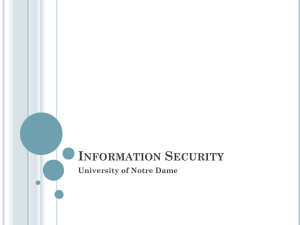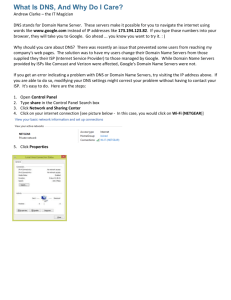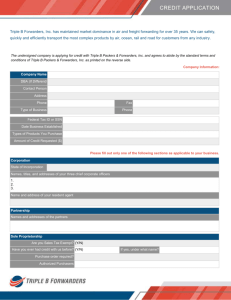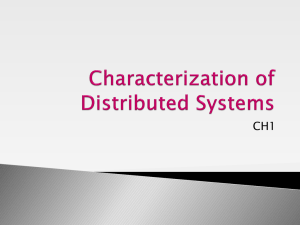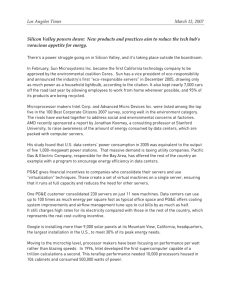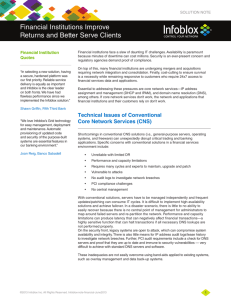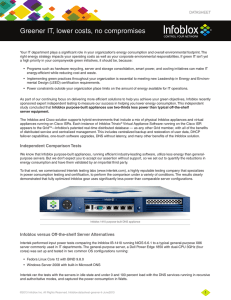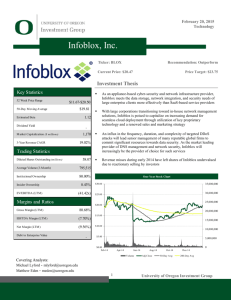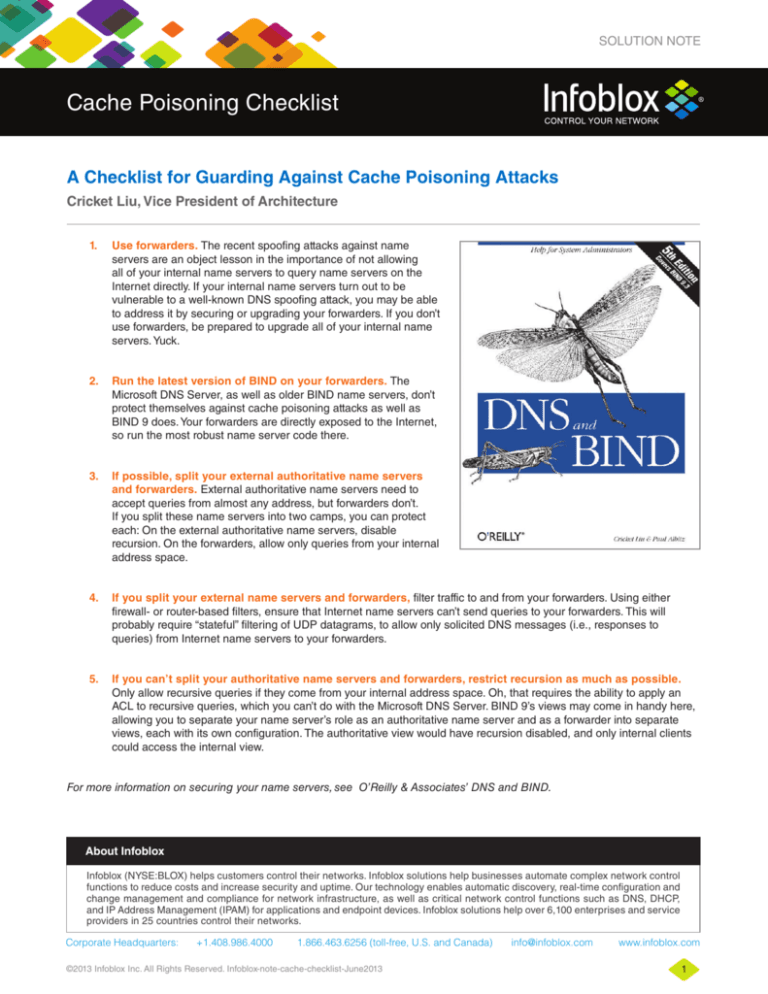
SOLUTION NOTE
Cache Poisoning Checklist
A Checklist for Guarding Against Cache Poisoning Attacks
Cricket Liu, Vice President of Architecture
1. Use forwarders. The recent spoofing attacks against name
servers are an object lesson in the importance of not allowing
all of your internal name servers to query name servers on the
Internet directly. If your internal name servers turn out to be
vulnerable to a well-known DNS spoofing attack, you may be able
to address it by securing or upgrading your forwarders. If you don’t
use forwarders, be prepared to upgrade all of your internal name
servers. Yuck.
2. Run the latest version of BIND on your forwarders. The
Microsoft DNS Server, as well as older BIND name servers, don’t
protect themselves against cache poisoning attacks as well as
BIND 9 does. Your forwarders are directly exposed to the Internet,
so run the most robust name server code there.
3. If possible, split your external authoritative name servers
and forwarders. External authoritative name servers need to
accept queries from almost any address, but forwarders don’t.
If you split these name servers into two camps, you can protect
each: On the external authoritative name servers, disable
recursion. On the forwarders, allow only queries from your internal
address space.
4. If you split your external name servers and forwarders, filter traffic to and from your forwarders. Using either
firewall- or router-based filters, ensure that Internet name servers can’t send queries to your forwarders. This will
probably require “stateful” filtering of UDP datagrams, to allow only solicited DNS messages (i.e., responses to
queries) from Internet name servers to your forwarders.
5. If you can’t split your authoritative name servers and forwarders, restrict recursion as much as possible.
Only allow recursive queries if they come from your internal address space. Oh, that requires the ability to apply an
ACL to recursive queries, which you can’t do with the Microsoft DNS Server. BIND 9’s views may come in handy here,
allowing you to separate your name server’s role as an authoritative name server and as a forwarder into separate
views, each with its own configuration. The authoritative view would have recursion disabled, and only internal clients
could access the internal view.
For more information on securing your name servers, see O’Reilly & Associates’ DNS and BIND.
About Infoblox
Infoblox (NYSE:BLOX) helps customers control their networks. Infoblox solutions help businesses automate complex network control
functions to reduce costs and increase security and uptime. Our technology enables automatic discovery, real-time configuration and
change management and compliance for network infrastructure, as well as critical network control functions such as DNS, DHCP,
and IP Address Management (IPAM) for applications and endpoint devices. Infoblox solutions help over 6,100 enterprises and service
providers in 25 countries control their networks.
Corporate Headquarters:
+1.408.986.4000
1.866.463.6256 (toll-free, U.S. and Canada)
©2013 Infoblox Inc. All Rights Reserved. Infoblox-note-cache-checklist-June2013
info@infoblox.com
www.infoblox.com
1

